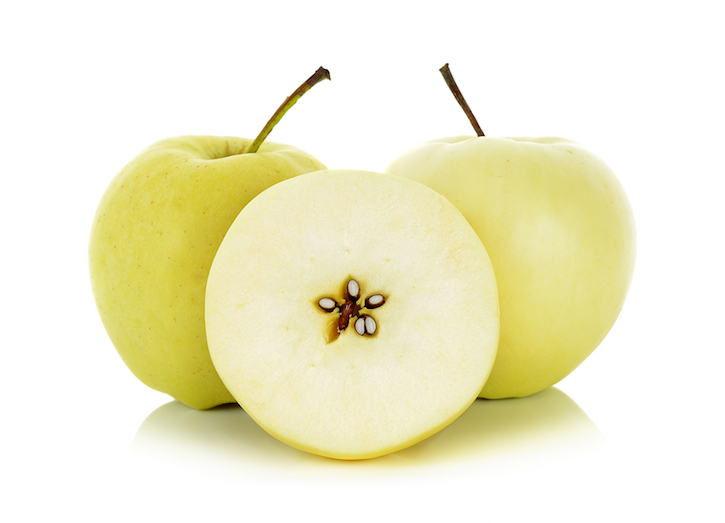
GMO Arctic Apples to Hit Shelves Next Month Without Clear Labeling
The first genetically modified (GMO) apples, which are engineered to resist browning when sliced, will arrive in select midwestern U.S. stores next month. The fruit, produced by Okanagan Specialty Fruits and sold under the brand name Arctic Apples, will be packaged as "grab-and-go" slices, according to Capital Press.
A customer will only know that the fruit is genetically modified by scanning the packaging with a smartphone.
January 19, 2017 | Source: EcoWatch | by Lorraine Chow
The first genetically modified (GMO) apples, which are engineered to resist browning when sliced, will arrive in select midwestern U.S. stores next month. The fruit, produced by Okanagan Specialty Fruits and sold under the brand name Arctic Apples, will be packaged as "grab-and-go" slices, according to Capital Press.
A customer will only know that the fruit is genetically modified by scanning the packaging with a smartphone. The company is adhering to the new GMO food labeling act which allows businesses to use a QR code instead of clear wording that informs consumers if a product contains GMO ingredients.
"We are selling it under the Arctic brand and we've had a lot of press and attention, so I assume most people will know what it is," Okanagan's founder and president Neal Carter told Capital Press.
The company's product can be identified with its logo of a snowflake inside an apple outline.
The apples first stirred up controversy in February 2015 when the U.S. Department of Agriculture (USDA) approved an aesthetically-improved genetically engineered food for the first time.
In order to prevent apples from browning, the company "silenced" an enzyme called polyphenol oxidase (PPO) that drives oxidation in apples. The benefit of these apples, as the company said, is that it cuts down food waste—about 40 percent of apples are currently wasted, with much of that waste from superficial bruising and browning.
Like the industry norm, Arctic Apples do not fully oxidize for three weeks after being cut into but without the flavor-altering, chemical additives used by the traditional sliced apple business.
The cost savings "can be huge," Carter told NPR. "Right now, to make fresh-cut apple slices and put them in the bag, 35 or 40 percent of the cost is the antioxident treatment. So you could make a fresh-cut apple slice 30 percent cheaper."
